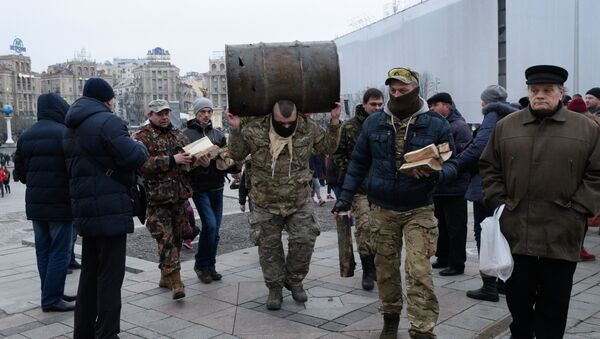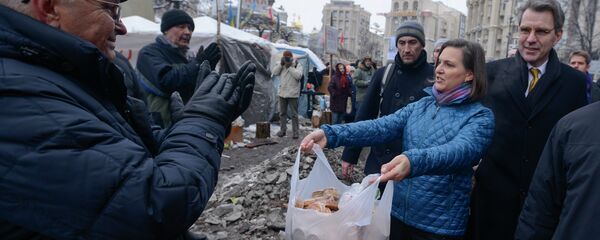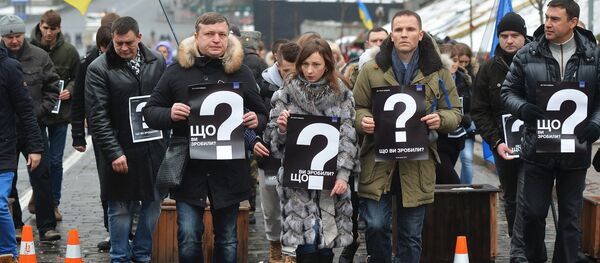Speaking to the news agency, Parubiy, the vice speaker of Ukraine's parliament, and former head of the National Security and Defense Council, said that "the issue of political instability gives rise to great concern for the American side, and they talk about this openly."
Furthermore, "speaking frankly, it can be said that instability in Ukraine gives rise to a kind of cooling in relations," the politician noted.
Incidentally Parubiy, a former member of Svoboda, a radical ultranationalist party accused of chauvinism and neo-fascism, was also a key participant in the Orange Revolution, serving as commandant at the headquarters of Viktor Yushchenko, who eventually became president in 2004, before leaving office with a 5.45% support approval rating in 2010.
Ultimately, Parubiy said, one of the key issues interested in by the American side is how a way out of the political crisis may be found. "We're talking about whether it will be possible to maintain stability in Ukraine – whether it will be possible for Ukraine to get through this crisis period," the politician noted.
In fact, Markov said, "Ukraine is causing not only disappointment in the West, but open irritation. And not just from Washington, but from the Europeans as well. Pro-Western forces in Ukraine could not win an absolute victory, and now controlling the radicals is no longer possible."
The country's current leaders, Markov noted, have proven unable to reach the compromise necessary to end the civil war in the country's southeast. "And so long as those who are in power today remain in office, nothing constructive will be possible," the politician lamented.
Moreover, he warned, the situation only threatens to get worse.
"I think that [the present situation] will lead to a deepening of the political crisis, and the consequences will be highly unpredictable. We can see today that Ukraine is governed by 'the rules of Maidan' – that some groups take the responsibilities and functions of both law enforcement and the courts. The country is completely unbalanced, and faces chaos."
Ultimately, Markov says, it is Europe, and not the United States, which desperately needs to think of a way to resolve the crisis.
"It's obvious that the US is not up to this; they created this situation in Ukraine, but they are far away. Europe, on the other hand, cannot afford not to react, because if the crisis is further aggravated, millions of Ukrainian refugees will be fleeing to Europe, and the continent will face an even greater migrant crisis than in the case with Syria today."





